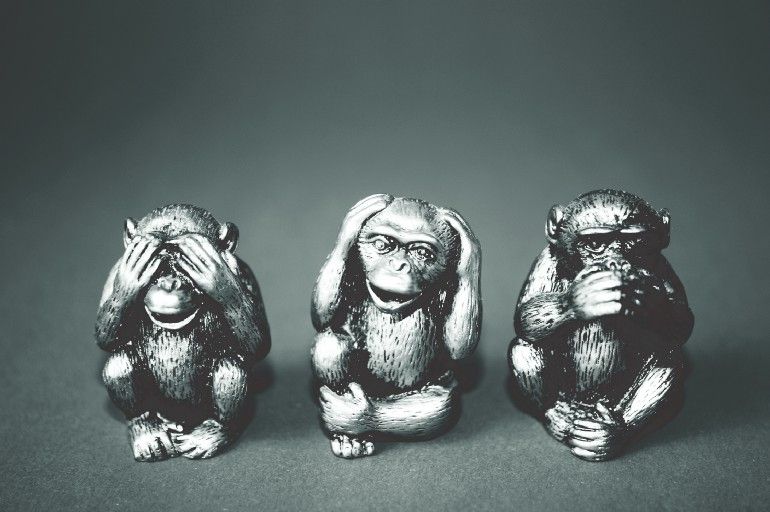For half my life I (kinda*) didn’t eat enough

(Published originally in March 2018)
This week is Eating Disorder Awareness Week and the theme is ‘Why Wait?’. On average, it takes someone with an eating disorder three years to seek help.
That’s ON AVERAGE. It took me much longer and even longer to be fully open about it.
Some of my reasons are here. After I wrote that I thought I’d ticked the box, done that — moved on. I was wrong. It wasn’t enough. I continued to talk to people and read about the power of being open. A growing distraction, it has stopped me getting started with related activities and sharing posts around other topics. I’ve got tired of silently lying about my mist but too bloody scared to stop.
Til now.
There was a point in time (important note one: that point isn’t recent) when I’d spent half of life having long stretches of eating insufficient amounts.
Important note two: I know how triggering and upsetting it can be read through the emotions and activities of those with eating disorders. I still recall the misplaced sense of achievement when I’d ‘succeeded’ in not eating. I won’t be sharing those details here.
*I was never smaller than size x and my weight was never lower than y (numbers are dangerous). There were times when I wouldn’t eat properly and then I’d ‘catch up’ and eat fine. I was never deemed sufficiently ill for the NHS to provide intensive support though I did have some over-night stays in hospital. I used to think I didn’t have an eating disorder.
I was lucky though. I was able to afford private counselling which helped me realise I had anorexia — a mental illness with disordered and dangerous habits. Important point three: To me, anorexia was a mist which ebbed and flowed. It was insidious.
Is that it? Yes, for now — aside from adding that I told a very small number of people and they helped me massively. It was because of them I was able to continue working during the darkest mists and I’ll be forever thankful (which I don’t tell them enough).
It would be wrong to not close with advice.
If you think you have a problem — you’ll be right. Start to do something about it — however small. Read and listen to lots — but only the good stuff. Delete links to stuff you know isn’t healthy (do that now). Write, draw or talk about it. Recovery ain’t easy but it’ll eventually feel better than you currently feel. Honest.
If you think someone has a problem — you may be correct and don’t ignore your fears. It’s not about food — it’s about thoughts and emotions so ask a small number of open questions about that instead.
If someone tells you they have issues with eating or food — stay close and regularly contact them. Even if someone says a small amount, it’ll be a huge step for them so acknowledge this and maybe add how proud you are that they have shared such private thoughts with you. If you don’t know what to say — that’s fine and just say that. This IS bloody difficult but say you’ve heard them. You’re listening. Be with them.
If someone tells you they want help — work on this quickly but don’t tell them what to do. What you want to suggest may be too significant or swift and may push someone to hide their secret again.
When someone tells you information like this it can difficult to know what to do next. When I shared my mist with others I used to guilt-trip myself about this. Without breaking confidences, share your concerns with someone you trust and certainly educate yourself and ask questions.
And me?

If you meet me after reading this, know that I am well, happy and supported. I know what led to my eating disorder, what helped me recover, what makes me stronger and what now keeps my mist away.
And know that I’ve plenty of life ahead of me.